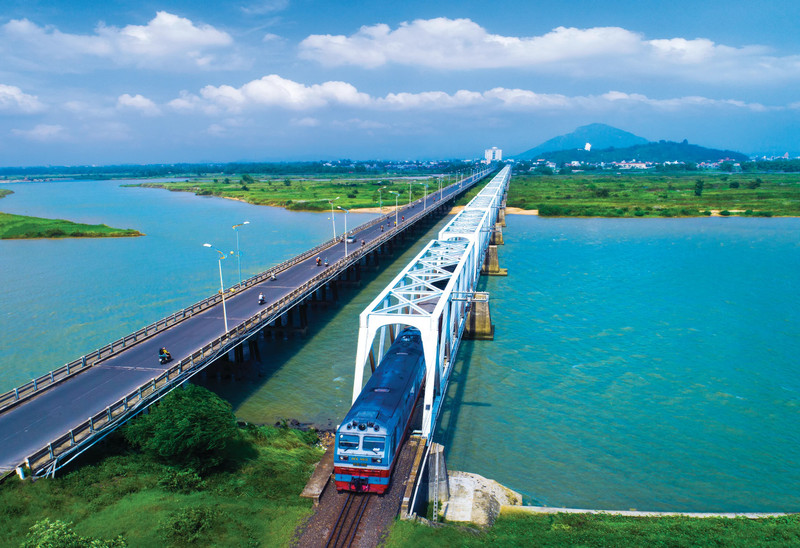Special policies needed
Discussing his HSR experience in Europe, Deputy Tran Hoang Ngan from Ho Chi Minh City stated that “I strongly desire for Vietnam to have this type of transport.”
He noted that while this project was discussed 15 years ago, resources were insufficient then. Now, with stable macroeconomics and low public debt, Vietnam can implement a HSR project.
However, he emphasised that technical and safety requirements must be prioritised. “We absolutely cannot compromise technical and safety requirements for cost and revenue,” said Ngan.
In addition to suggesting the mobilisation of domestic capital and preferential foreign loans, and limiting ODA loans, Ngan stressed the need to engage qualified domestic businesses in this project.
While supporting the HSR project, Nguyen Ngoc Son, member of the National Assembly’s Committee for Science, Technology and Environment, emphasised that this unprecedented project requires international consultants to assist with project management, design consultation and verification to ensure fastest progress and highest quality. He also suggested reviewing and proposing special policies to address implementation challenges.
Vu Hong Phuong, Director of the Railway Project Management Unit, stated that the Party and government prioritise domestic businesses across all sectors — from consulting and construction to material production and railway industry.
Vietnamese businesses need to collaborate
So, can Vietnamese businesses meet these requirements?
Nguyen Xuan Toi, General Director of Hanoi Construction Investment JSC, proudly noted that his 30-year-old company specialises in railway material production and construction, and that they are ready to leverage their strengths for the project.
“Our understanding of conventional railways will help us quickly adapt to high-speed rail. We hope to partner with other businesses to share experience and capabilities, allowing us to participate in the HSR project,” Toi affirmed.
Van Hong Tuan, Deputy General Director of Cienco4, said: “As soon as the HSR project was announced, we were determined to prepare the best conditions to participate in the project within two years. Like others, Cienco4 is focusing on preparing human resources (engineers and workers), equipment, and other requirements.”
Nguyen Duy Thang, Deputy General Director of Trung Chinh Trading and Construction Company, confirmed they can handle all construction below the rails, including foundations, bases and beams.
As a major domestic steel manufacturer, Tran Dinh Long, Chairman of Hoa Phat Group, also affirmed that the group supports the north-south HSR project and particularly appreciates the requirement to use domestically produced goods in bidding packages.
Long stated: “According to an estimate by consultants, the project needs about 6 million tonnes of steel. As one of the top 50 global steel producers, Hoa Phat is confident in making the following four pledges. First, supplying all 6 million tonnes, including HSR rails and high-strength prestressed steel. Second, ensuring international quality standards. Third, guaranteeing on-time delivery. And fourth, offering competitive prices below imported steel.”
According to experts and domestic contractors, Vietnamese businesses must collaborate to participate in the north-south HSR project and remain competitive domestically, given the large amount of construction and installation from the project.
Nguyen Quoc Hiep, Chairman of the Vietnam Construction Contractors Association, stated this is Vietnam’s largest project in terms of both capital and scale, potentially transforming construction contractors with over 33 billion USD in construction value.
Hiep noted Vietnamese contractors have developed significantly and can handle the technology and construction requirements. The main concern is workforce capacity.
Similarly, Nguyen Duc Kien, former head of the Prime Minister’s Economic Advisory Group, pointed out that Vietnamese businesses are very weak in collaboration.
He noted that only two Vietnamese businesses qualified for Samsung’s supply chain in 2014 and warned that without proactive cooperation to invest in technology, winning bids will be very difficult.
















